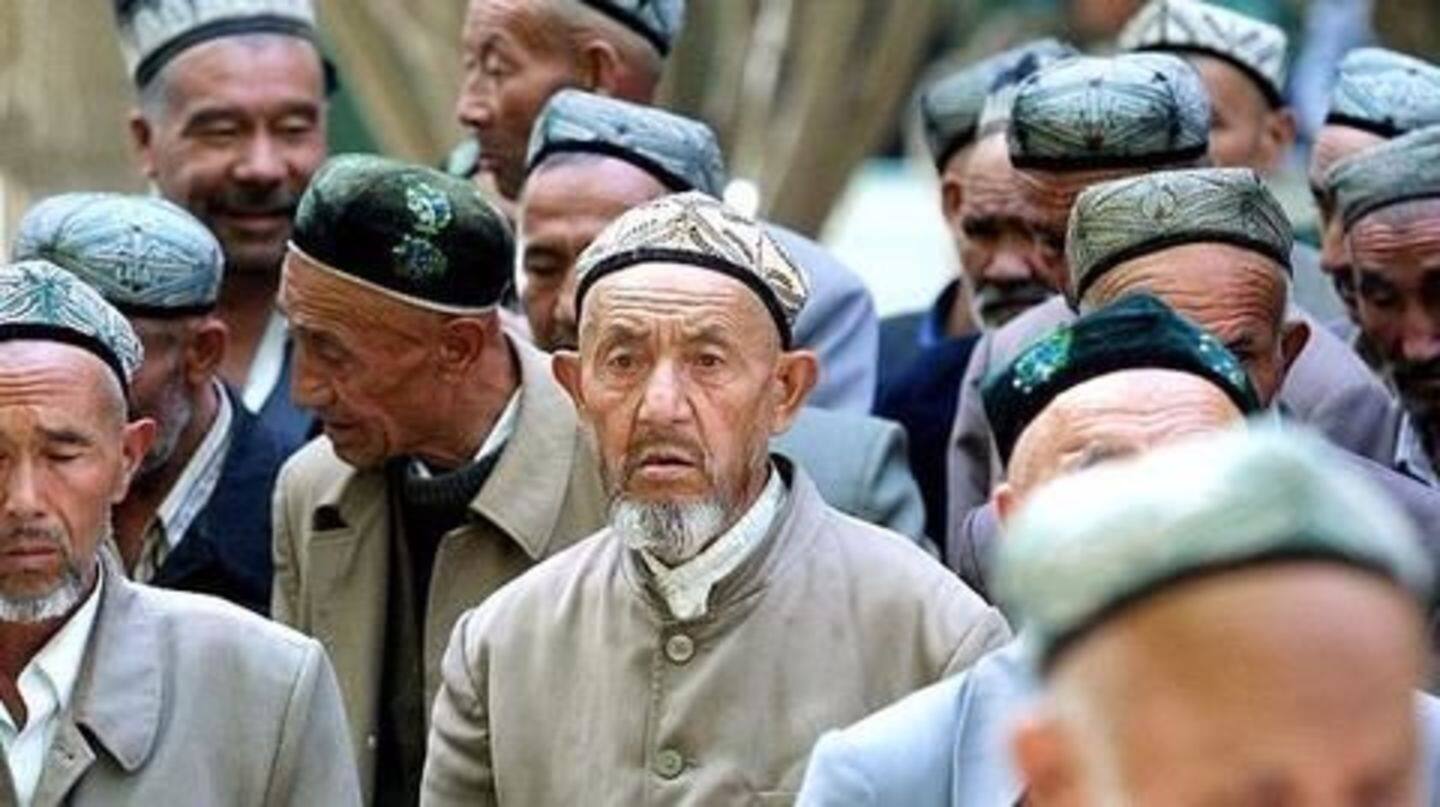
China: 'Religious' names banned for Muslim children in Xinjiang
What's the story
Officials in China's Xinjiang have released a list of banned "religious" names for Muslim babies; children with "unacceptable" names might be denied household registration, which is important to access state benefits. Names like Islam, Quran and Saddam, and references to the star and crescent moon, aren't allowed. The full list hasn't been made public yet. Let's explore naming laws across the world.
28 Mar 2017
US: Legal spat over naming child 'Allah'
Petitioners have filed a lawsuit against the state of Georgia for not allowing a couple to assign 'Allah' as their daughter's last name. Elizabeth Handy and Bilal Walk wanted to name their daughter 'Allah', but state officials said the last name could only be Handy, Walk or both. The American Civil Liberties Union challenged the state's laws.
Do you know?
Naming laws
Naming laws restrict the names that parents can legally give their children. The purpose is to avoid naming children something offensive or embarrassing. Many countries have naming laws; most govern the name's meaning, while some govern scripts in which it is written.
China
Naming laws in China
Babies in China are required by law to be named on the capability of computer scanners to identify those names. Names that are easily readable are encouraged, as are simplified characters over traditional Chinese ones. Numbers and non-Chinese symbols and characters are not allowed. In the 2000s, people with difficult names were advised to change them to facilitate identification cards.
New Zealand
New Zealand's naming laws
New Zealand's Births, Deaths and Marriages Registration Act of 1995 doesn't let people name their children anything that "might cause offence to a reasonable person; or is unreasonably long; or without adequate justification is, includes, or resembles an official title or rank." Some of the rejected names in New Zealand include Fish and Chips, Sex Fruit, Satan and Adolf Hitler.
Denmark
Denmark's Law on Personal Names
Denmark's strict Law on Personal Names protects children from having odd names, which their parents might have taken a fancy to. A list of 7,000 pre-approved names is available for parents to choose from. If parents want to name their child something that isn't part of the list, special permission has to be obtained from the local church and later reviewed by government officials.
Do you know?
Banned names in Saudi Arabia
Western names and names with royal connotations are banned in Saudi Arabia. Some of these include Elaine, Linda and Alice.
09 Nov 2016
Italian court permits mother to give baby her surname
According to Italy's naming law, children of married couples automatically inherit their father's surnames. This law was labelled "unlawful" by a constitutional court which granted a mother the right to give her surname to her child. Campaigners against this law have been fighting for a long time for according to them it is based on "outdated patriarchal ideals."
Quote
Constitutional court's statement
In a statement, the Italian constitutional court said, "The court has declared the unlawfulness of rules providing for the automatic attribution of the paternal surname to legitimate children, when the parents wish otherwise."